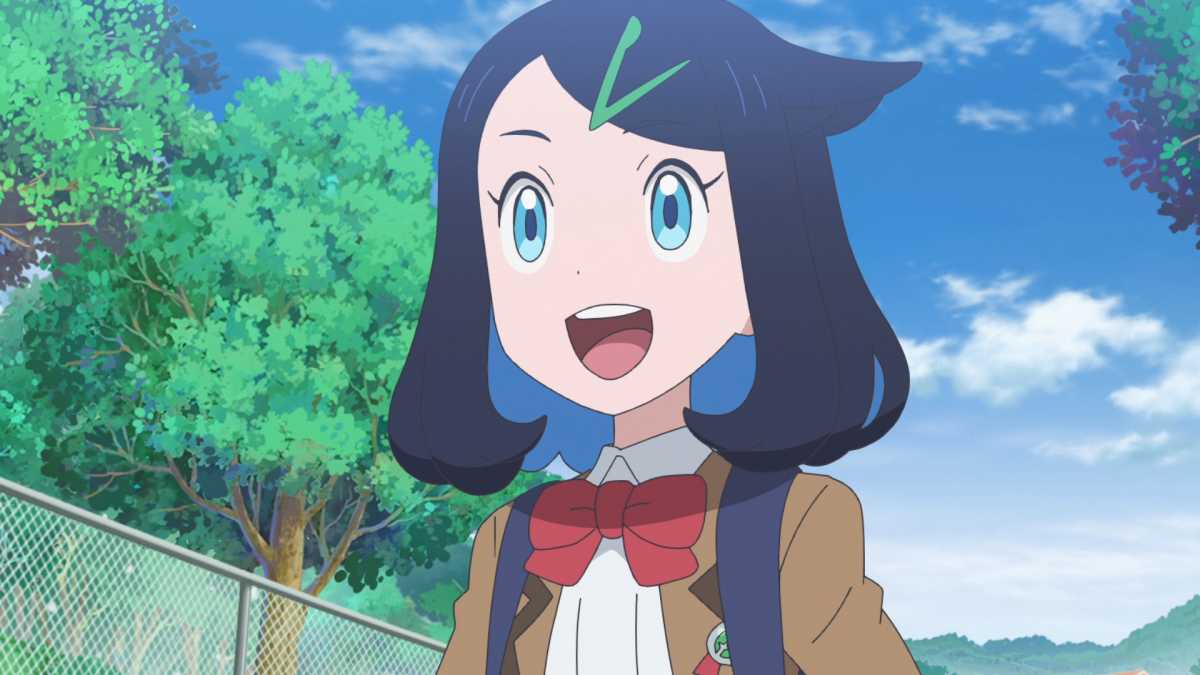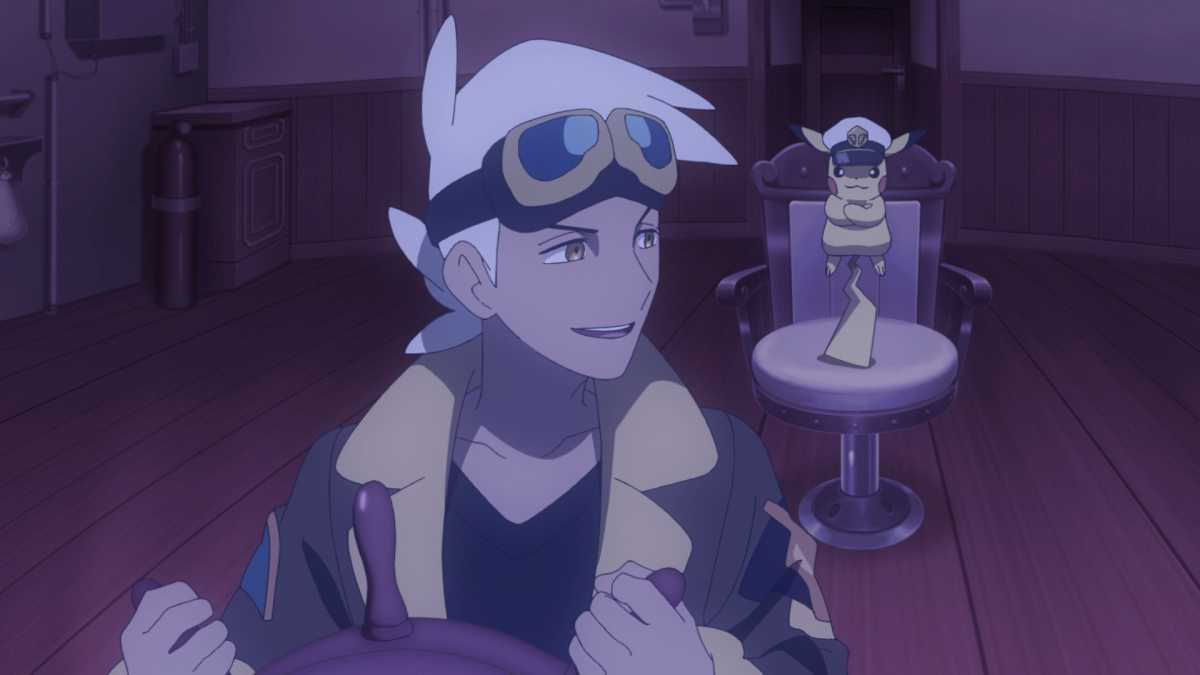Earlier this year, the English dub of Ash Ketchum’s 25-year long saga came to a triumphant end, with a long send-off to the young hero. Now, Pokémon is moving ahead with the next generation of its animation, and I got an early first look at the first four episodes.
Pokémon Horizons: The Series ditches League training and Team Rocket for a brand-new adventure. Like the Indigo League, it still kicks off in the Kanto region, and features many familiar faces such as Pikachu and Charizard. However, the action starts in a school – a similar setting to what you’ll find in the most recent Pokémon games, Scarlet and Violet.
Branching away from a charismatic lead does feel like a risk, but young viewers may empathise with Liko and her journey to self-confidence

Pokemon
Liko is almost the polar opposite of her predecessor. Whilst Ash was overwhelmingly positive and easy-breezy in the face of adversity, Liko is a walking ball of anxiety. The show has a consistent dialogue of her internal spiraling thoughts, and how she struggles to come to terms with not only being a trainer but being the centre of often unwanted attention.
Branching away from a charismatic lead does feel like a risk, but young viewers may empathise with Liko and her journey to self-confidence – something that was often a side story in the original show (Chloe would be the most recent example).
I would advise being patient with the first episode of Horizons, as it is extremely exposition-heavy and may invoke a bit of eye-rolling for any seasoned Pokémon fans when it spells out the basics of type matchups and battles – even if it’s necessary for new audiences. Nonetheless, it sets up Liko’s challenging dynamic with her partner, Sprigatito, very well.
It also builds up the mystery that lies at the centre of the show: Liko’s evidently powerful pendant that is drawing the attention of some unwanted company in the form of the Explorers. They are more formidable and competent opponents than Team Rocket, striking for a slightly more mature tone for the reboot overall.
The following episodes build up an ensemble group of heroes known as the Rising Volt Tacklers, larger than the traditional trio dynamic that often frequented the original show. The standout character is the leader, Friede, a swashbuckling former professor who dives headlong into action – often to the frustration of Liko.
The other young protagonist in the show is the bright-eyed and bushy-tailed aspiring Trainer Roy, though he gets less of a focus early on in the show. He carries a mysterious looking Poké Ball, which I’m betting houses an important Legendary that will be saved for the climax of the season.
The first four episodes were not quite enough to delve into every team member, so some have only brief moments to shine. Hopefully, further instalments will rectify that.
the show has done a good job at making this team not feel like a rehash of what has come before

Pokemon
What I will say is that the show has done a good job at making this team not feel like a rehash of what has come before. Even Pikachu – affectionately known as Captain Pikachu or ‘Cap’ by Friede – feels different from Ash’s partner in crime, with a more bolshy and self-assured nature that perfectly embodies his role on the airship that the group travels on.
I followed Ash’s journey throughout the years, and whilst the final few seasons were a major step up in quality, there was a repetitive formula to each generation that often felt stagnant – especially when the minor villains/comic relief duo Jesse and James would be overused, to the point that their iconic motto lost its hilarious edge.
Ash also suffered from being reset every few seasons, so that he could stay the same age to be ‘relatable’. By doing that, the show would set his personal progress back a few steps. In addition, Pikachu would have to have some sort of convoluted injury or power drain to ensure that he wasn’t strong enough to defeat all his challengers.
By the time we got to the Journeys saga, Ash finally felt like he’d reached his limit. Whilst longtime fans may have been sad to see him go, I think most would agree that it was his time had come. There was speculation that his final companion, Goh, would take over the wings but I’m glad that the franchise has decided to wipe the slate clean.
It allows Horizons to strike its own tone, which focuses more on finding out the mysteries of Pokémon – which rather fittingly is Ash’s final wish as he sets out on his path at the very end of his adventure. Every episode has also progressed the main plot nicely, a far cry from the raft of fillers in Ash’s long tale, though there is still time.
I’m eager to see where her story goes and hope that the strong opening is indicative of what’s to come.
Not knowing Liko’s goal is also an interesting choice. Ash’s trajectory was clear, to be the very best, like no one ever was (I know you’re singing along). Liko didn’t feel at home at the Indigo Academy, and it’s intriguing to wonder what dream she’ll choose to chase if any at all.
The animation has also had a makeover, with impressive scenery shots and quirky moments with the Pokémon themselves who both look and feel more lifelike than ever before and in line with recent Nintendo Switch games.
Whilst the action hasn’t yet reached Paldea, the most recent setting for the main video games, Liko is originally from there and there are some story elements teased that are yet to debut in the upcoming DLC for the title.
Pokémon Horizons is a step away from the story of Ash Ketchum, but it promises some intriguing adventures and gives us an endearing protagonist with room to grow. I’m eager to see where her story goes and hope that the strong opening is indicative of what’s to come.
Pokémon Horizons: The Series is due to launch in the UK on BBC iPlayer this Friday, 1 December 2023, and on CBBC on Monday, 4 December 2023 – you’ll be able to stream it for free on BBC iPlayer. There isn’t yet a US release date, but you can catch the show by using our guide to watching BBC from America.
